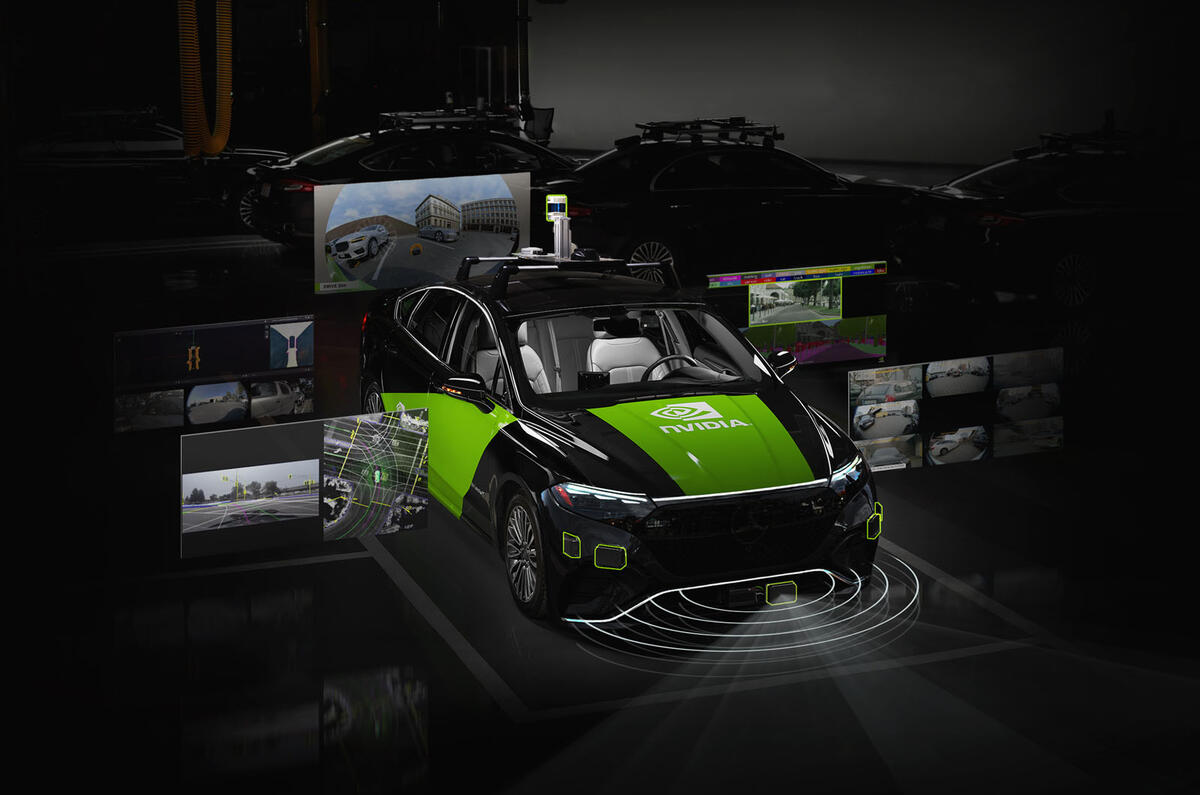Fully autonomous cars are “not close” and unlikely to go into full use on public roads until well into the next decade, according to the automotive boss of tech giant Nvidia.
The Californian firm produces the advanced computing systems and software that are being used by a large number of leading car firms, including JLR, Mercedes-Benz and Volvo, to underpin self-driving technology in next-generation vehicles.
Nvidia has invested heavily in expanding its presence in the car industry in order to capitalise on the growth in demand for its chips, driven by autonomous technology. But speaking exclusively to Autocar, Ali Kani, head of Nvidia’s automotive division, said truly autonomous cars will “not appear in this decade”.
He added: “It’s a next-decade marvel. We’re not close. It’s super-hard.”
While several cars offer limited autonomous capability in certain controlled situations, Kani said the ability for cars to truly drive themselves requires another step forward in computing power and technology.
“The software we’re developing right now is so different than the software we were developing last year,” he said. “We’re working on large-language models now, like ChatGPT with video, and nobody was doing that in automotive three years ago.
“That kind of model needs a lot more computing power, a lot more memory bandwidth. You need more sensors like lidar and radar, and you need redundant algorithms to ensure it’s safe – and those need to run in parallel, which means more computing.”
Kani said that while the current generation of driver assistance systems works through planning software that pre-defines actions in certain situations, truly autonomous cars will be required to behave more naturally. “When the car is following planned rules, you get this herky-jerky behaviour and ghost braking. And you’re like: ‘I don’t like this car. I don’t feel safe.’ But the next generation of cars will learn behaviour, so it’s a natural understanding. That’s when you start to say: 'Whoa, this car is driving so calmly and smoothly.’”
Kani also stressed the need for caution in pushing development of self-driving technology. He said: “The industry needs to go slowly with this. If one firm makes one mistake, the whole industry gets pushed back a few years. So we have to act in the most responsible way and not take any shortcuts. You can only do it when you have proven that it is really safe.”








Join the debate
Add your comment
Can someone tell the press and Tesla then, I've lost count of the number of articles Autocar has published over the years saying it's just round the corner.
It's not as if everyone is begging for it.